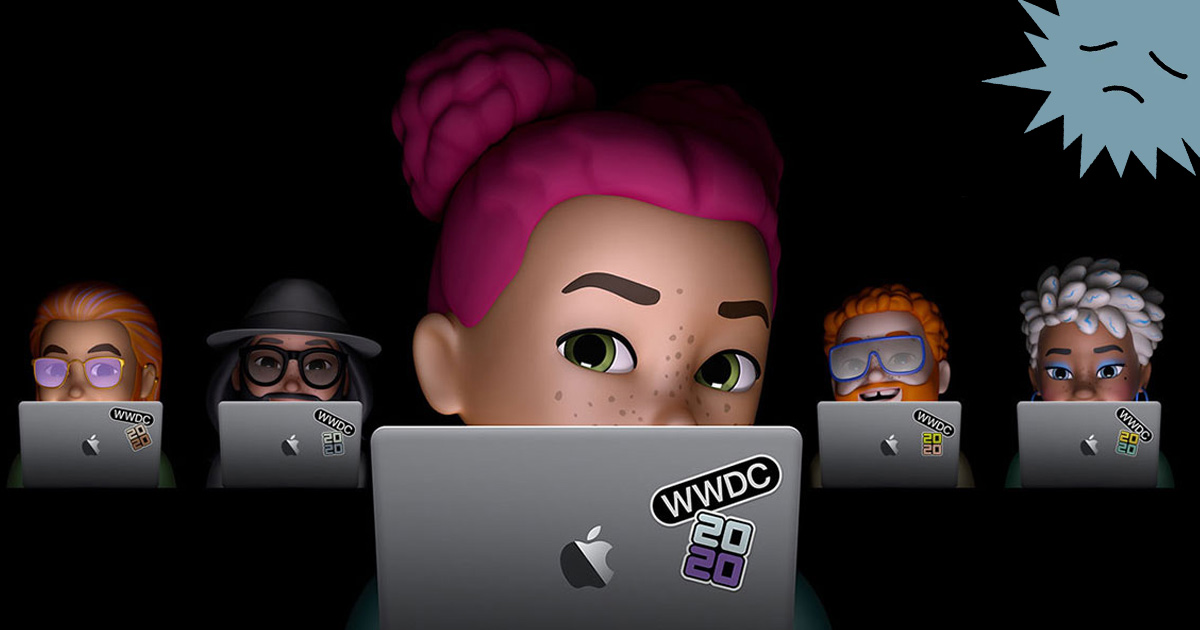
This platform change is reminiscent of what happened in 2006 when Apple switched from PowerPC to Intel, but there are a few differences. First, when the company switched from PowerPC to Intel, Windows was already at most x86 / x86-64 architectures. Hence, thanks to this, the Mac ended up on the same processor platform as the dominant Windows OS. This time, Apple is doing the opposite - porting the Mac to ARM, which does not have a large share in desktops and laptops. The situation with the market is also different - today the dominant type of computers is smartphones. In addition, the market share of Linux has grown significantly, accounting for more than 2% (mostly used by developers).
What does all this mean for macOS and iOS developers?
For iOS developers, this is pretty good news. This move means that the Mac will now run on the same architecture as the iPhone and iPad, making it much easier to build macOS-enabled apps. This is especially true because all iOS apps will now be available on ARM-based Macs from release, unless the app developer opts out. It seems to me that in this case, the already great iPhone and iPad simulators will provide even better performance.
However, automatically publishing iOS apps to Mac is a double-edged sword. IPhone apps are designed to work optimally on the iPhone. This means that without additional efforts from the developers, they can look very strange on a much larger screen with an aspect ratio of 16:10. It takes a lot of development work to make the app look great on Mac.
For Mac developers, the benefit will be more battery life and development on a potentially much more powerful computer. But there ... the benefits practically end. Rosetta 2 will allow legacy applications to run on the new ARM architecture, but at the cost of performance degradation. In fact, Rosetta 2 is only a temporary solution, giving developers time to port their applications. And this, again, requires developer effort.
What about other developers?
For developers who do not have the Apple ecosystem as their primary target platform, the changes can either go unnoticed or lead to platform abandonment. Many cross-platform developers will probably not have to do almost anything extra, because all the work of adapting applications for Apple processors is likely to be done by frameworks. At the same time, Bootcamp (the software used to run Windows on Apple hardware) will not work on newer Macs. For many developers, this will be a reason for abandoning the platform, because Windows on ARM is licensed only for OEMs, which means there is no way to run Windows on a Mac with ARM yet.
For many other developers, especially web developers (who make up the vast majority), this new architecture can create difficulties in that their machines run on an architecture that is different from the architecture of their Linux servers.
Let me explain what this means with an example: I usually work with a Mac, because on one machine I can immediately test my applications on all major platforms. Need to test Windows software? Launch Parallels and boot the Windows VM or dual boot from the Bootcamp partition. Do you need Linux testing? Launch Parallels again. Developing a mobile app? Mac is the only computer on which you can test iOS and Android software. At the same time, I write server scripts mainly on Mac, then I test their compatibility with Parallels, and then I fix a few errors that may arise due to the fact that I work on a Mac, not Linux, and after I do this by deploying to servers. After switching to Apple processors, many of these features may be lost.
Output
While I've mostly focused on the negative aspects of switching to Apple processors in this article, there are many positives as well. Imagine a laptop that can run on battery for several days and is more powerful than today's models. Imagine being able to write an application once and run it seamlessly on iPhone, iPad, and Mac. Imagine being able to run the latest games at excellent frame rates without a separate GPU and fast battery drain. All of this may soon become reality.
On the other hand, what if AMD and Intel continue to dominate the high-end computer market, and Apple's ARM chips can only compete in the lower end? What if the bet on changing architectures doesn't pay off, and Apple loses favor with developers?
Advertising
Whatever device you use, you can always order our epic servers with instant activation . Convenient server control panel that works great from any device. To register and order the service, you just need to specify your email, server activation - within a minute!
